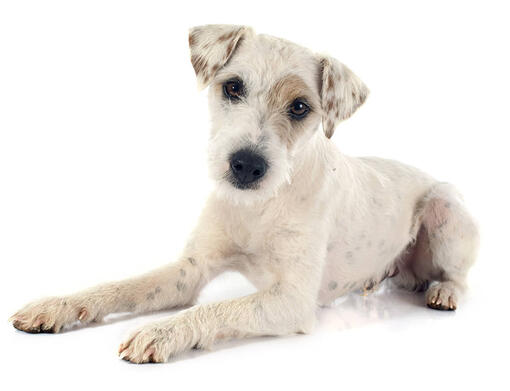
Parson Russell Terrier
A bold and clever fox hunter first bred in England in the mid-1800s, the Parson Russell Terrier has exceptional strength and endurance. Friendly, outgoing and playful, the breed is tenacious in the field and affectionate at home. Though good with children, he does not tolerate rough handling. Full of energy, the Parson requires regular exercise and attention, and his clean coat is relatively low-maintenance.
DID YOU KNOW? The Parson Russell Terrier got its name from the renowned British huntsman, the Rev. John Russell, "The Sporting Parson."
ALSO KNOWN AS: Parson, Parson Jack Russell Terrier, Jack Russell Terrier
The need-to-know
- Dog suitable for non-experienced owners
- Some training required
- Enjoys active walks
- Enjoys walking an hour a day
- Small dog
- Minimum drool
- Requires grooming once a week
- Non hypoallergenic breed
- Chatty and vocal dog
- Guard dog. Barks and alerts
- May require training to live with other pets
- May require training to live with kids
Personality

In general the Parson Jack Russell Terrier is a friendly, devoted and affectionate dog with lots of personality. They can make good pets for the active family and must be socialised from an early age especially with cats and other dogs. Gardeners will soon discover that digging is one of this dog's favourite pastimes!
History and Origins

The Parson Russell Terrier dog breed was developed and established in the 18th century in Devon by the Reverend John Russell. John Russell was born into a fox hunting family in 1795. He wanted a dog that could keep up with the horses, run with the hounds and was small enough to flush the foxes from their dens. While studying at Oxford he saw, and bought, the perfect dog for his purposes, belonging to the milkman. It is thought that this was this was the first dog to be known as a Jack Russell. During his time as a clergyman, John Russell devoted himself to both the church and breeding terriers suitable for fox hunting.
Nutrition and Feeding

Small dogs have a fast metabolism, meaning they burn energy at a high rate, although their small stomachs mean that they must eat little and often. Small-breed foods are specifically designed with appropriate levels of key nutrients and smaller kibble sizes to suit smaller mouths. This also encourages chewing and improves digestion.
Exercise

This dog, being an active little terrier, should have lots of exercise. They like nothing better than a long walk where they can get off the lead and can pick up a scent. Do work hard on a reliable recall before letting him off-lead, as the Parson Russell Terrier is prone to 'selective deafness'!
Other Information

Health and common issues
The Parson Russell Terrier is generally a hardy breed, like most terriers. As with many breeds, they can s can suffer from hereditary eye disorders, and so eye testing is recommended.
Best family dog breeds
While many dogs are traditionally thought of as being good with children , all dogs and children need to be taught to get on with and respect each other, and be safe together. Even so, dogs and young children should never be left alone together and adults should supervise all interactions between them.